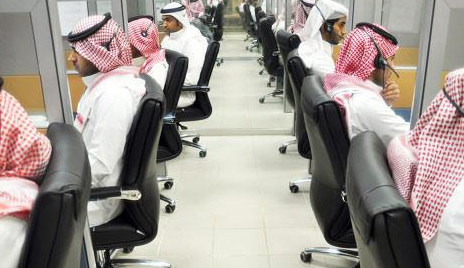
Riyadh, Dec 15: More than 254,000 Saudi men and women have been employed in the aftermath of the status correction phase for foreign workers, Labor Minister Adel Fakeih announced at a meeting held recently to discuss the latest developments in the Saudi labor market.
The minister pointed out that the rise in employment figures among Saudis is a result of a 25 percent decrease in foreign labor recruitment and the deportation of 1 million illegal expatriates.
“The ministry has launched a prompt visa service for companies in the platinum zone, and has allocated teams to monitor changes on a weekly basis. Moreover, around 94 percent of the ministry’s services can be conducted online,” he added.
Fakeih also said that 1.9 million citizens benefited from the ministry’s programs, 80 percent of whom are women.
“We have the right to secure jobs for women within a suitable working environment,” he said.
He also emphasized the ministry’s efforts to safeguard the rights of employees and their salaries through the wage protection program.
The minister highlighted the fact that around 90 percent of the graduates from the Technical and Vocational Training Corporation have been employed over the past five years, and 10 percent are registered with the Hafiz program.
“We should not blame the state for citizens’ wrongdoings; we should not blame the state either when citizens conspire with business owners because they don’t want a particular kind of job,” he cautioned.
He said the Ministry of Labor has a bundle of programs to provide jobs and training to citizens, including Nitaqat and Hafiz.
The labor minister also reiterated that the raids against violating expatriates would continue in accordance with the directives issued by Custodian of the Holy Mosques King Abdullah.
Fakeih announced that an electronic portal named “Together” will be launched soon. It will enable citizens and businessmen to express their opinions and views about the ministry’s performance and thereby provide direct feedback to officials.





Comments
Add new comment